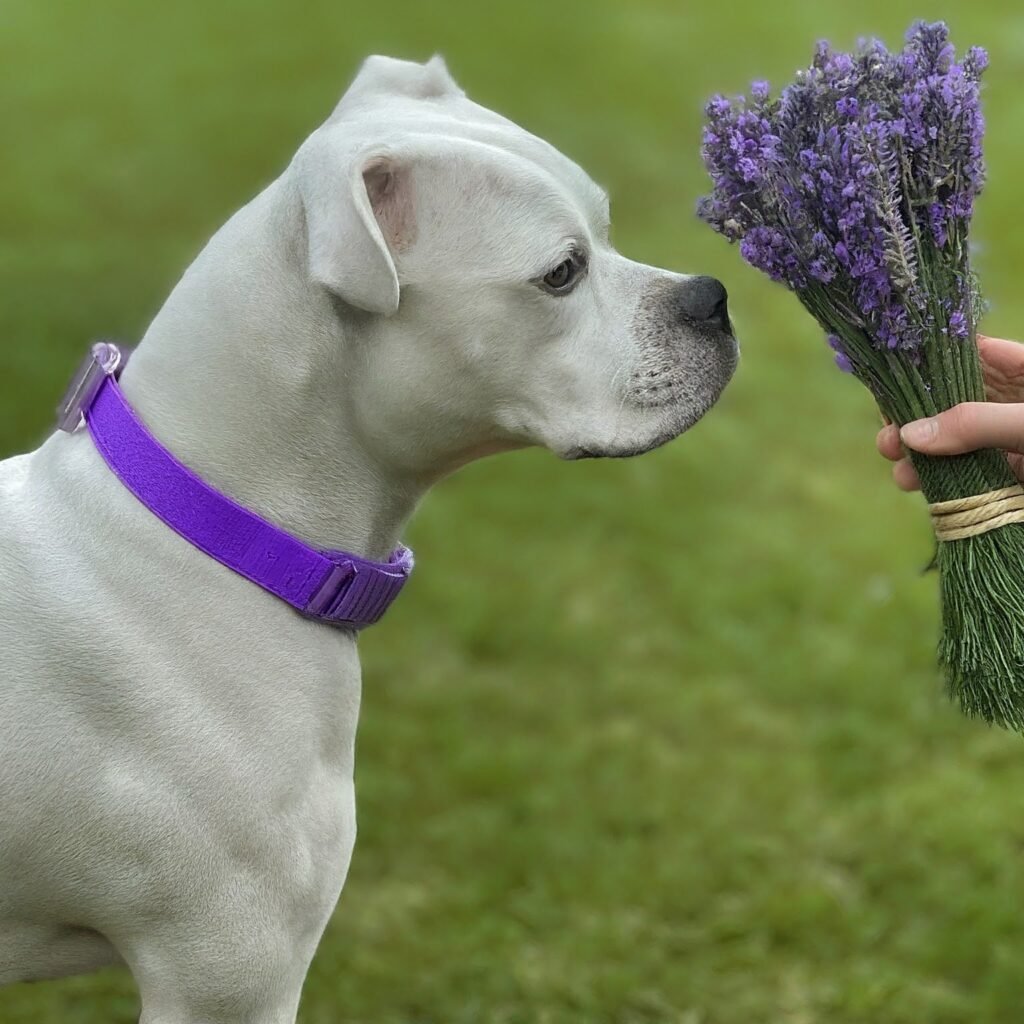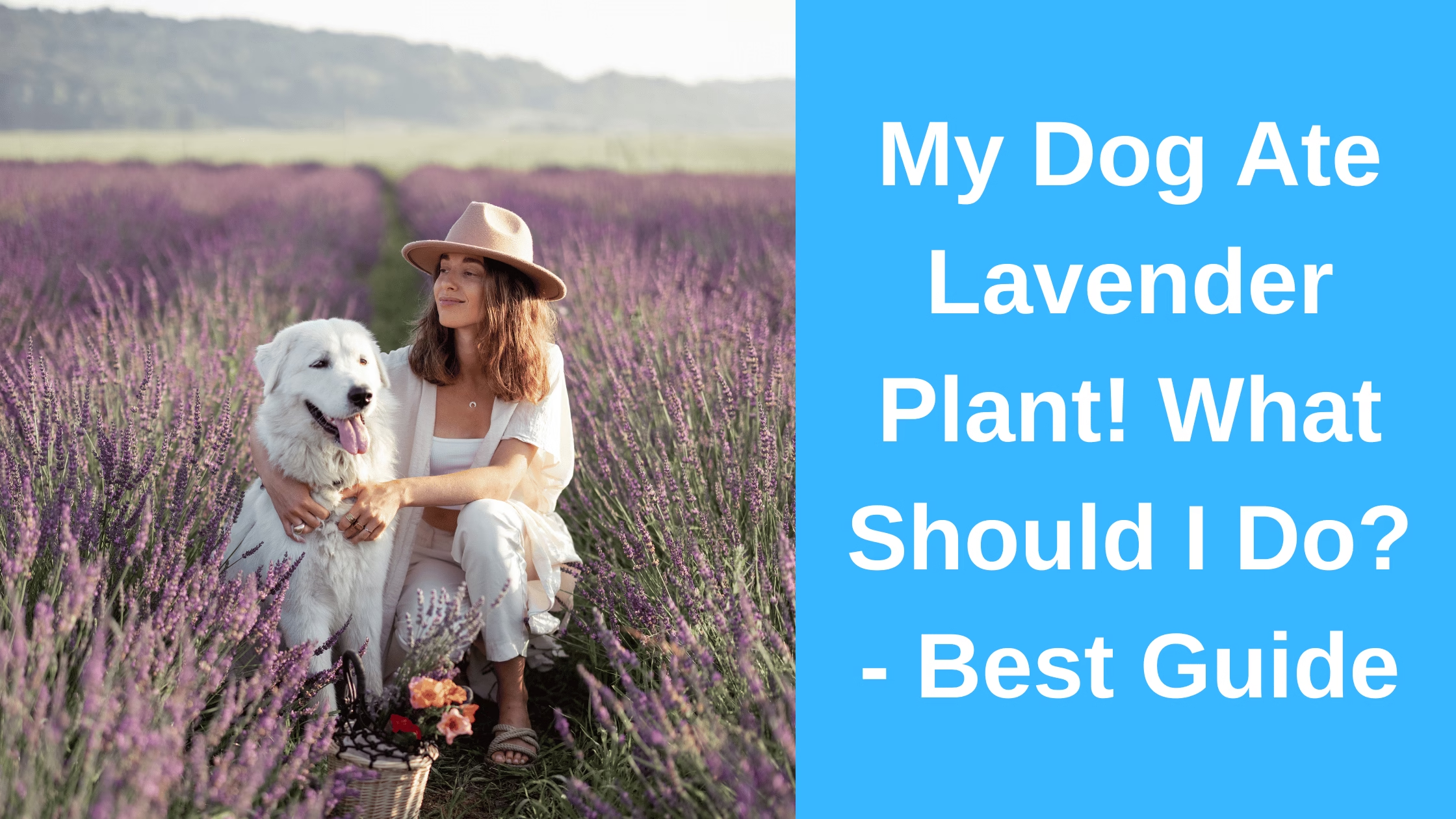My Dog Ate Lavender Plant! What Should I Do? You may be concerned about the potential effects if your dog has eaten a lavender plant.
While lavender is generally considered non-toxic to dogs, there are essential details to remember regarding its consumption and the possible symptoms that can arise.
Understanding Lavender and Its Effects on Dogs

Lavender (Lavandula angustifolia) is a popular aromatic plant known for its calming scent and various uses in aromatherapy and cooking.
Although it contains compounds like linalool and linalyl acetate, which can irritate in large quantities, the overall toxicity level of lavender is low for dogs.
Is Lavender Toxic to Dogs?
- Non-Toxic in Moderation: Lavender is often deemed safe for dogs when consumed in small amounts. Most dogs will only experience severe reactions if they ingest large quantities.
- Mild Symptoms Possible: A dog consuming lavender may experience mild gastrointestinal upset, including symptoms such as vomiting or diarrhea. However, these symptoms are generally not severe and tend to resolve quickly.
- Potential Risks: Ingesting excessive amounts of lavender may cause more severe conditions, such as intestinal blockages, particularly if the dog ingests large quantities of plant material.
My Dog Ate Lavender Plant – What to Do If Your Dog Eats Lavender
If you discover that your dog has eaten lavender, here are steps to follow:
- Monitor for Symptoms: Monitor your dog for any signs of distress. Common symptoms to watch for include:
- Vomiting
- Diarrhea
- Abdominal pain or bloating
- Loss of appetite
- Lethargy
- Contact Your Veterinarian If your dog vomits after eating lavender or exhibits any concerning symptoms. They can provide guidance based on your dog’s specific situation. In most cases, mild symptoms will resolve independently, but your vet can help determine if further action is necessary.
- Prevent Future Incidents: To avoid ingestion, consider training your dog to leave garden plants alone or use barriers to keep them away from lavender and other potentially harmful plants.
Long-Term Effects of Lavender Poisoning in Dogs
Fortunately, lavender is not known to cause long-term effects in dogs— most cases of lavender ingestion result in mild gastrointestinal upset, which typically resolves without lasting consequences.
However, suppose a dog consumes a large quantity. In that case, the intestinal blockage is risky and can have profound implications if not treated promptly.
Can Lavender Essential Oil Be Harmful to Dogs If Ingested?
Yes, lavender essential oil can harm dogs if ingested in significant amounts.
The oil contains concentrated levels of linalool, which can cause gastrointestinal upset, lethargy, and other symptoms if consumed.
Keeping essential oils out of reach for pets and using them cautiously in aromatherapy is crucial and ensuring they are properly diluted and applied safely.
How to Safely Use Lavender Around Your Dog
While direct ingestion of lavender is discouraged, there are safe ways to utilize lavender for its calming properties:
- Aromatherapy: Lavender essential oil can be used in diffusers to create a calming environment for your dog. Ensure that the oil is well-diluted and that your dog can exit the area if the scent becomes overwhelming.
- Topical Applications: Lavender-infused shampoos and sprays designed specifically for dogs can help soothe skin irritations and promote relaxation. Always dilute essential oils before applying them to your dog’s skin to avoid irritation.
- Calming Products: Many pet products incorporate lavender for its calming effects, which can help reduce anxiety during stressful situations like thunderstorms or travel.
Preventing Your Dog from Eating Lavender Plants
To prevent your dog from eating lavender or other plants in the future, consider these strategies:
- Training: Teach your dog commands like “leave it” or “no” to discourage them from eating plants.
- Physical Barriers: Use fencing or plant barriers to protect your dog from lavender and other potentially harmful plants in your garden.
- Alternative Distractions: Provide your dog with plenty of toys and activities to keep them engaged and less likely to nibble on plants.
Also Read: Why Do Dogs Love Snow? – Discover Reasons & Safety Tips
Also Read: Why Do Dogs Love Walks? – The Joy of Walks
Final Thoughts
In summary, while lavender is generally safe for dogs in small amounts, monitoring your pet closely if they consume any part of the plant is essential.
Contacting your veterinarian is the best action if your dog vomits or shows any adverse symptoms.
By understanding the effects of lavender and utilizing it safely, you can enjoy the benefits of this lovely plant without compromising your dog’s health.
Sources:
- https://wagwalking.com/condition/lavender-poisoning
- https://dogtime.com/dog-health/dog-food-dog-nutrition/96621-can-dogs-eat-lavender-safe
- https://www.thesprucepets.com/toxic-plants-for-puppy-dogs-2804773
- https://www.dispatch.petfinn.com/blog/articles/is-lavender-safe-for-dogs
- https://www.webmd.com/pets/dogs/risks-of-essential-oils-for-dogs
- https://www.dogster.com/ask-the-vet/my-dog-ate-lavender-plant
- https://blog.myollie.com/is-lavender-oil-safe-for-dogs/







